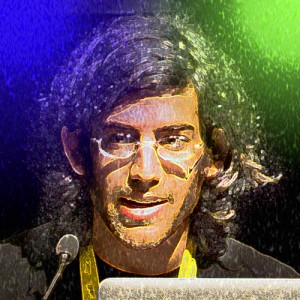Aaron Swartz Versus the Bankers
A New Yorker article on Aaron Swartz, who committed suicide while under federal investigation for bulk downloading academic articles, leaves little to disagree with. But it missed a comparison that has troubled me: between Swartz and the bankers who tanked the world economy.
I have found myself unable to write about this topic until now. First, Swartz lived for many years in my apartment building in Cambridge, Mass., and many residents remember him as quiet and kind. Second, I share his belief in the free flow of information. Using the NonCommercial ShareAlike license from Creative Commons, MIT Press published and freely licensed my Street-Fighting Mathematics. “One of the early architects” of Creative Commons was Aaron Swartz.
Swartz tried to free knowledge and expand the public domain. In contrast, the bankers took from the public domain.
Not one banker has gone to jail, except Bernie Madoff — whose crime, as Matt Taibbi points out, was defrauding the wealthy. Bankers, even with a demonstrated record of laundering billions in drug money, are too big to jail. In contrast, Swartz was threatened with a long federal prison sentence.
Swartz was an enemy of rent-seeking. The bankers are its epitome.
Whereas the bankers are drawing ever bigger bonuses, Swartz’s case ended in his suicide.
As a final contrast, Swartz failed in his last project: the academic knowledge, much of it paid for with public funds, still sits behind toll booths. (As a previous New Yorker article pointed out, he probably should have worked with specialist hackers, instead of trusting his own skills, diverse as they were.) The bankers, on the other hand, succeeded.
Barraged by propaganda about intellectual “property,” from Disney and friends seeking to lock knowledge behind government-enforced toll booths, we have fallen far from our free-thinking colonial forebears and Thomas Jefferson‘s famous 1813 letter to Isaac McPherson:
If nature has made any one thing less susceptible than all others of exclusive property, it is the action of the thinking power called an idea, which an individual may exclusively possess as long as he keeps it to himself; but the moment it is divulged, it forces itself into the possession of every one, and the receiver cannot dispossess himself of it. Its peculiar character, too, is that no one possesses the less, because every other possesses the whole of it. He who receives an idea from me, receives instruction himself without lessening mine; as he who lights his taper at mine, receives light without darkening me.
Rest in peace, Aaron Swartz. Your light still shines.


Comments